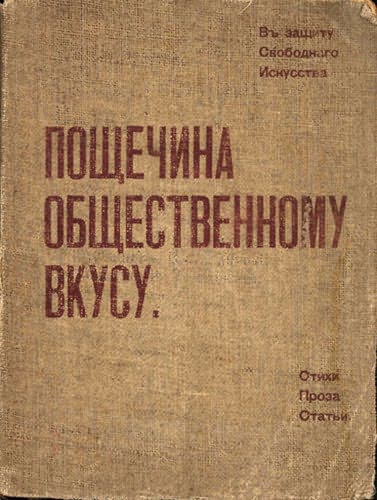Sianne Ngai: Ugly Feelings (2005)
Filed under book | Tags: · aesthetics, affect, art, avant-garde, emotion, feminism, literature, modernity, politics, postmodern

“Envy, irritation, paranoia—in contrast to powerful and dynamic negative emotions like anger, these non-cathartic states of feeling are associated with situations in which action is blocked or suspended. In her examination of the cultural forms to which these affects give rise, Sianne Ngai suggests that these minor and more politically ambiguous feelings become all the more suited for diagnosing the character of late modernity.
Along with her inquiry into the aesthetics of unprestigious negative affects such as irritation, envy, and disgust, Ngai examines a racialized affect called “animatedness,” and a paradoxical synthesis of shock and boredom called “stuplimity.” She explores the politically equivocal work of these affective concepts in the cultural contexts where they seem most at stake, from academic feminist debates to the Harlem Renaissance, from late-twentieth-century American poetry to Hollywood film and network television. Through readings of Herman Melville, Nella Larsen, Sigmund Freud, Alfred Hitchcock, Gertrude Stein, Ralph Ellison, John Yau, and Bruce Andrews, among others, Ngai shows how art turns to ugly feelings as a site for interrogating its own suspended agency in the affirmative culture of a market society, where art is tolerated as essentially unthreatening.
Ngai mobilizes the aesthetics of ugly feelings to investigate not only ideological and representational dilemmas in literature—with a particular focus on those inflected by gender and race—but also blind spots in contemporary literary and cultural criticism. Her work maps a major intersection of literary studies, media and cultural studies, feminist studies, and aesthetic theory.”
Publisher Harvard University Press, 2005
ISBN 0674015363, 9780674015364
viii+422 pages
Reviews: Jennifer L. Fleissner (Modernism/modernity, 2006), Jennifer Greiman (Leviathan, 2012), Eu Jin Chua (Bryn Mawr Review of Comparative Literature, 2007), Dina Mendonça (Metapsychology, 2005).
Interview with author (Adam Jasper, Cabinet)
Publisher
PDF, PDF (updated on 2018-5-23)
Comment (0)A Slap in the Face of Public Taste: In Defense of Free Art: Poems, Prose, Essays (1912) [Russian]
Filed under book | Tags: · avant-garde, cubism, futurism, literature, poetry, russia

A famous Russian futurist book is bound in sackcloth and printed on wrapping paper. It opens with a manifesto signed by David Burliuk, Alexander Kruchenykh, Vladimir Mayakovsky, and Viktor Khlebnikov, followed by two essays by David Burliuk on cubism and on texture [both signed Nikolai Burliuk], verse by Khlebnikov and Benedikt Livshits, and four prose sketches by Wassily Kandinsky.
Poshechina obshestvennomu vkusu. V zashchitu svobodnogo iskusstva. Stikhi, proza, stat’i (Пощёчина общественному вкусу. В защиту свободного искусства: Стихи, проза, статьи)
Publisher Georgy L. Kuzmin, Moscow, Dec 1912
114 pages
Wikipedia (Russian)
Commentary (from a book on the aesthetics and ideology of speed in Russian avant-garde by Tim Harte)
Sound recording of Kandinsky’s poem To See
Russian avant-garde on Monoskop wiki
Florian Cramer: Exe.cut(up)able statements: Poetische Kalküle und Phantasmen des selbstausführenden Texts (2011) [German]
Filed under book | Tags: · aesthetics, algorithm, avant-garde, code, code poetry, experimental literature, history of literature, information aesthetics, kabbalah, literature, net art, poetry, software, text, theory

“From the antiquity to today, there has been poetry that literally performs computations, processing its own letters. Prototyped by magic and Pythagorean mathematical aesthetics, it encompasses such diverse forms as kabbalist and Lullist language combinatorics, word permutation poetry, ludistic poetry, computational text collage, aleatoric, stochastic and recursive texts, Oulipian constraints, computer-generative literature, poetry in programming languages, and codeworks. Just like visual and sound poetry poetize the graphetic and phonetic dimensions of words, these writings show that computation is a dimension of language. On top of that, their poetics is rife with speculative and contradictory programs: often one and the same text form is at once being instrumentalized for total art and anti-art, mysticism and technicism, order and chaos. This has resulted in a fantastic literature whose speculative imagination manifests itself in the arrangement of letters rather than the semantics of the text. The book includes close readings of a 17th century sonnet (Quirinus Kuhlmann’s “XLI. Libes-kuss”), a 20th century musical composition (Alvin Lucier’s “I am sitting in a room”) and a 21st century net.art codework (mez breeze’s “_Viro.Logic Condition][ing][ 1.1_”), and discusses limitations of existing literary and media theory for criticism of these works.
A shorter, less scholarly English-language mutant of this book has been electronically published in 2005 as Words Made Flesh: Code, Culture, Imagination.”
Publisher Wilhelm Fink Verlag, October 2011
343 pages
Note: the book has just become free for Open Access publishing and is offered here for download in its manuscript version, licensed under Creative Commons Attribution Unported 3.0.
Comment (0)
